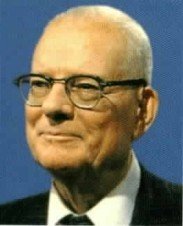The true measure of leadership is influence—nothing more, nothing less” (John, Maxwell, “21 Irrefutable Laws of Leadership”). Without influence, a person cannot lead. Regardless of who has a title or position, the leader is the person that commands attention. Great leaders earn trust and respect as they emerge from the “refiner’s fire” with competence, character, and a pattern of success. The culture, values, and quality of an organization are always a reflection of its leaders.

Below are ten qualities I have observed in exceptional business leaders.
1. Great Leaders have Clear Vision and a Passion to Succeed.
John Maxwell said, “The leader finds a dream, and then the people. The people find the leader, and then the dream.” In successful organizations, leaders have a clear vision, mission, and objective. Their singleness of purpose drives them forward through obstacles and challenges, and frequently beyond their comfort zone. They have an incurable passion to succeed and seek to become the best in their field. They know where they’re at, where they want to go, and they work daily to get there.
Great leaders are prepared to pay the price for success. Failure is not an option. The higher their position within the organization, the greater the sacrifice they are willing to make to achieve success. “The right [leaders] will do everything in their power to build a great [organization], not because of what they will get in terms of incentives and compensation, but because they simply cannot imagine settling for anything less. Their moral code is ‘excellence for its own sake’” (Jim Collins, “Good to Great”).
2. Great Leaders have a Specific “Game Plan.”
Effective leaders always have their eye on the goal. From clearly understood organizational strengths, weaknesses, opportunities, and threats (SWOT Analysis), they plan their unique strategy—or game plan—to compete in a crowded marketplace. Great leaders focus their goals and action plans on the vital few things that produce the greatest results. They patiently and methodically pursue their objectives, adapting to change, persevering through hardships, and proactively turning problems into opportunities. They know their customer and employee expectations and work systematically to surpass them. The written strategy statement describes their “best-known way” of achieving the mission and vision of the organization.
3. Great Leaders Create a Culture of Discipline and Excellence.
The culture of an organization has an enormous influence on performance. Great leaders value effective business systems, habits and patterns of discipline, commitment to results, and accountability at every level. “A culture of discipline involves a duality,” says Jim Collins. “On the one hand it requires people who adhere to a consistent system; yet, on the other hand, it gives people the freedom and responsibility within the framework of that [business] system.”
In a culture of discipline, great leaders face the brutal facts when performance is lacking, and continually seek innovation and improvement. They pursue the best over the easiest. Leaders cultivate a high degree of trust, respect, cooperation, and partnerships with employees, vendors, and customers. They unite leaders and managers at every level to create an organization that is “greater than the sum of its parts,” aligning individual and team performance with the organization’s strategic objectives.
Generalized solutions, seat-of-the-pants operations, and employee discretion are replaced with detailed procedures, performance standards, and accountability. A culture characterized by “Results Rule!” discipline (Randy Pennington) is one of high-energy and a can-do spirit that values the contribution of everyone in the organization.
4. Great Leaders are “Systems Thinkers.”
Effective business systems and processes are the essential building blocks of a successful organization. Great leaders view well-designed operational systems as the primary means to increase efficiency, accomplish objectives, and give customers what they want every time. They are the solution to frustrations, waste of resources, poor performance, and other daily problems.
Within a culture of discipline, great leaders pull together their talent and resources to create business systems and processes that consistently produce desired results. They understand that innovation and continuous improvement of business processes drive all growth and profit.
Great leaders are strong marketers and seek to develop high-performance marketing systems. They use accounting and financial data to measure the effectiveness of their internal business operations. The best leaders recognize that only when every critical system is fulfilling its purpose and delivering intended results, will the organization prosper. The daily work of great leaders is to inspire and guide the development of vital systems and processes within the organization.
5. Great Leaders Measure Performance and Arm Themselves with Data.
Exceptional leaders sometimes make decisions based on intuition and experience; however, they continually seek facts and data about the organization. They are always aware of their key performance indicators (KPI’s) and if they are achieving targeted objectives. The best leaders hold everyone—including themselves—accountable for measured results.
Great leaders know precisely what customers want and what competitors are doing better. They value the opinions of others but rely on hard data to affect change within the organization. Effective leaders understand the principle that “When performance is measured, performance improves. When performance is measured and reported, the rate of improvement accelerates” (Thomas Monson, business and religious leader).
Next week, I will discuss five more qualities of outstanding business leaders.
Related Article:
Ten Qualities of Exceptional Business Leaders (Part 2)







